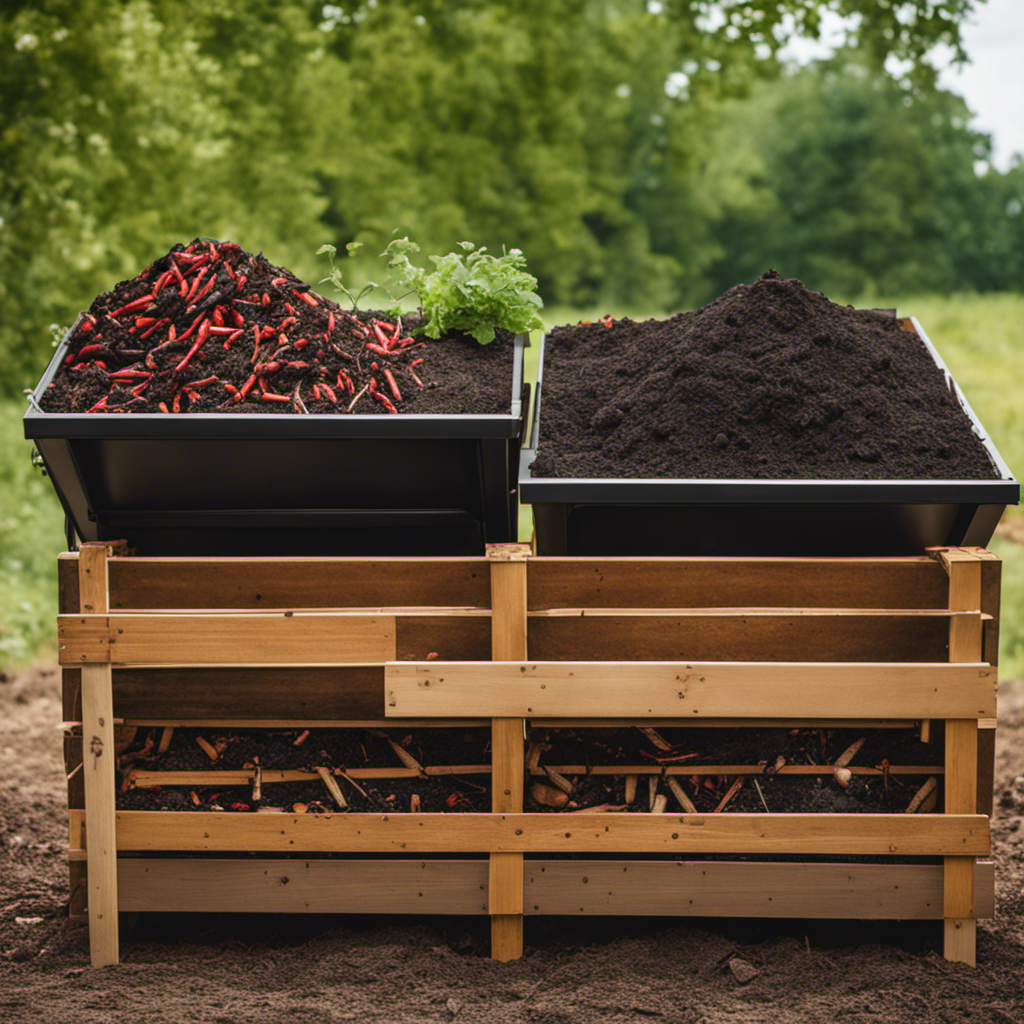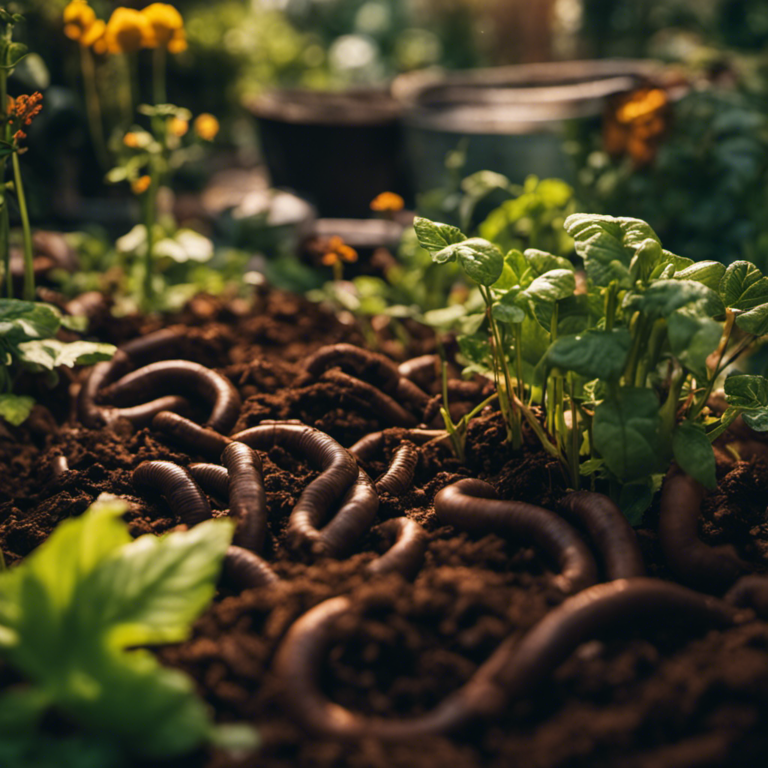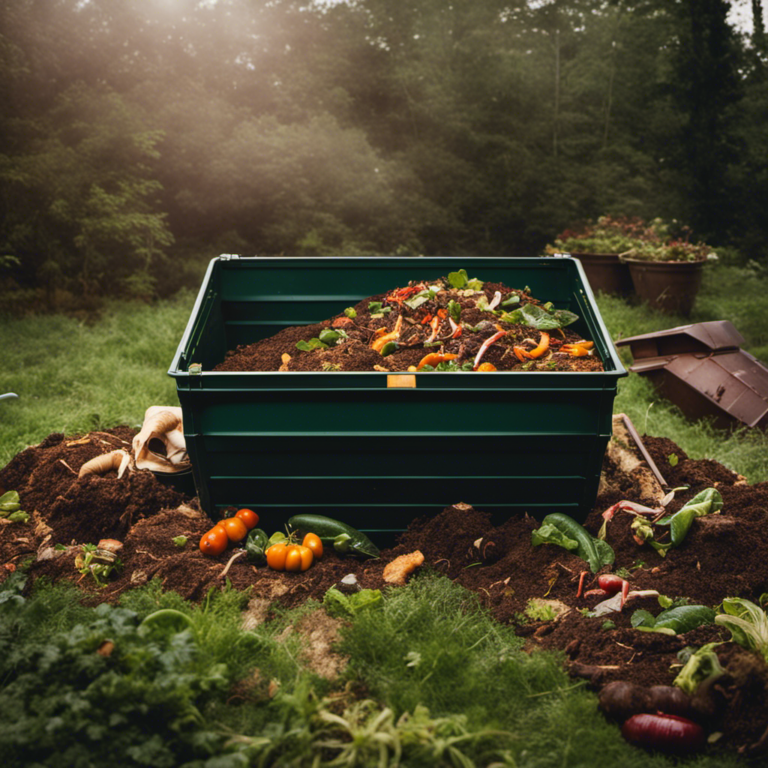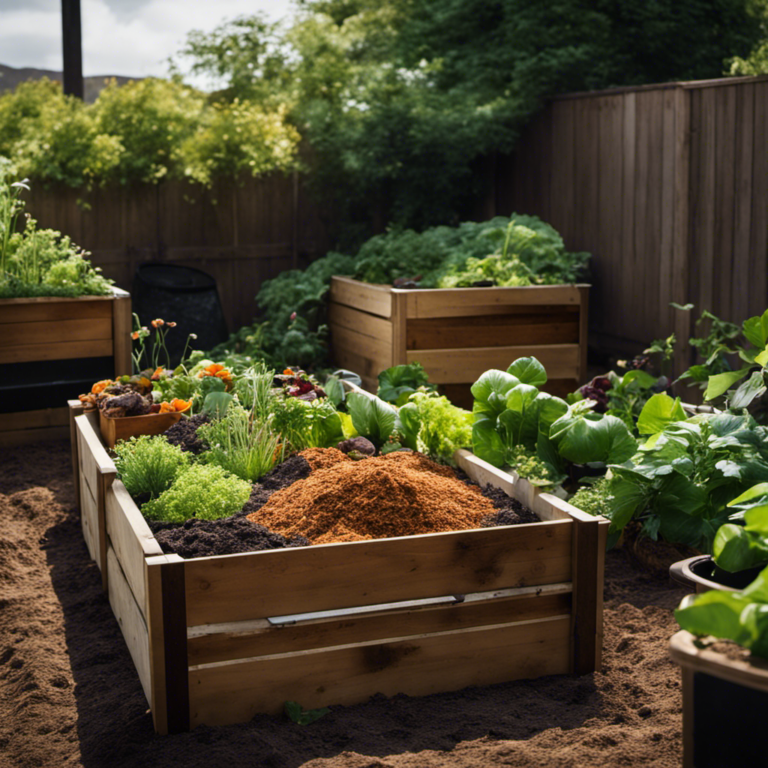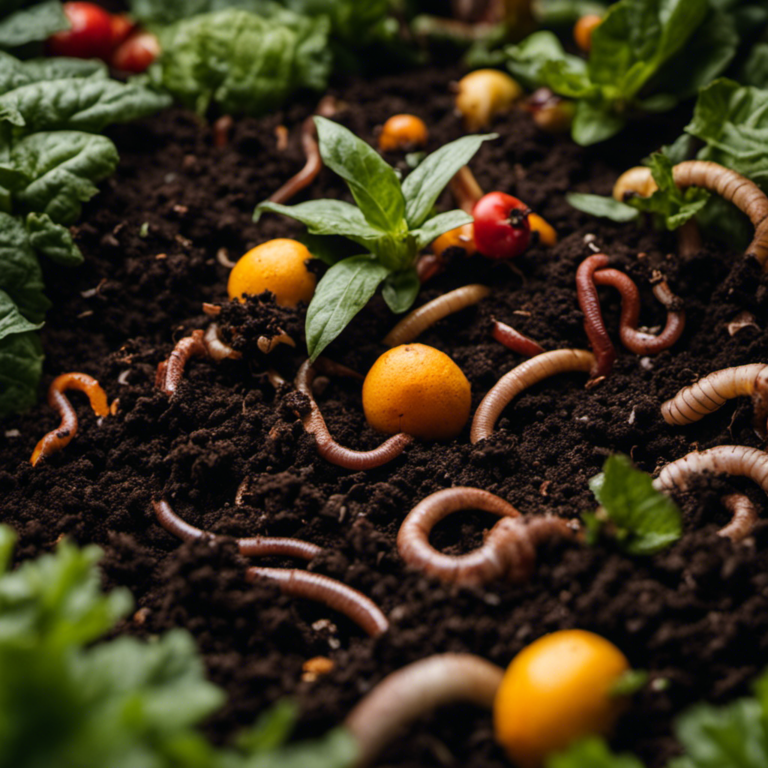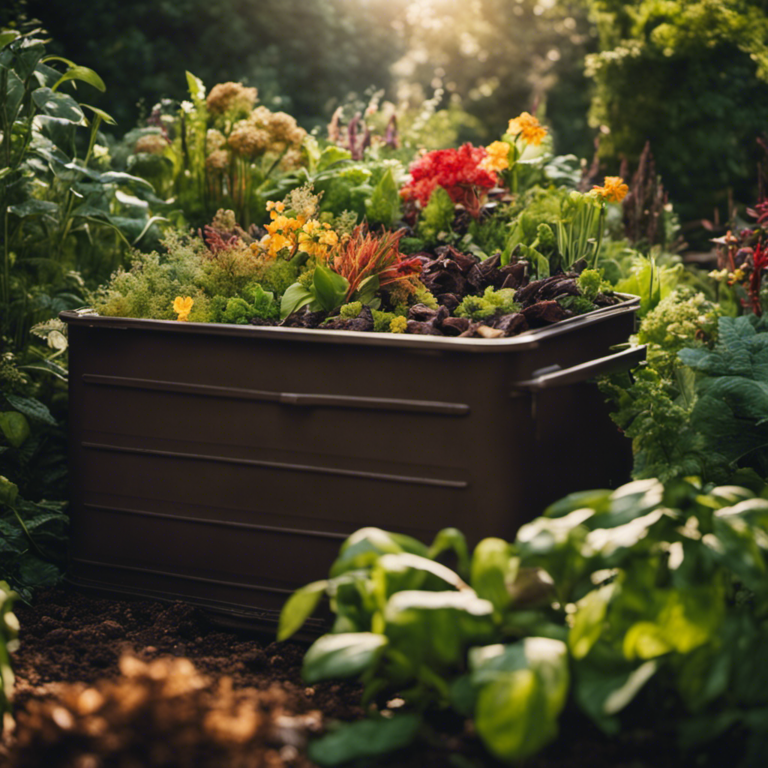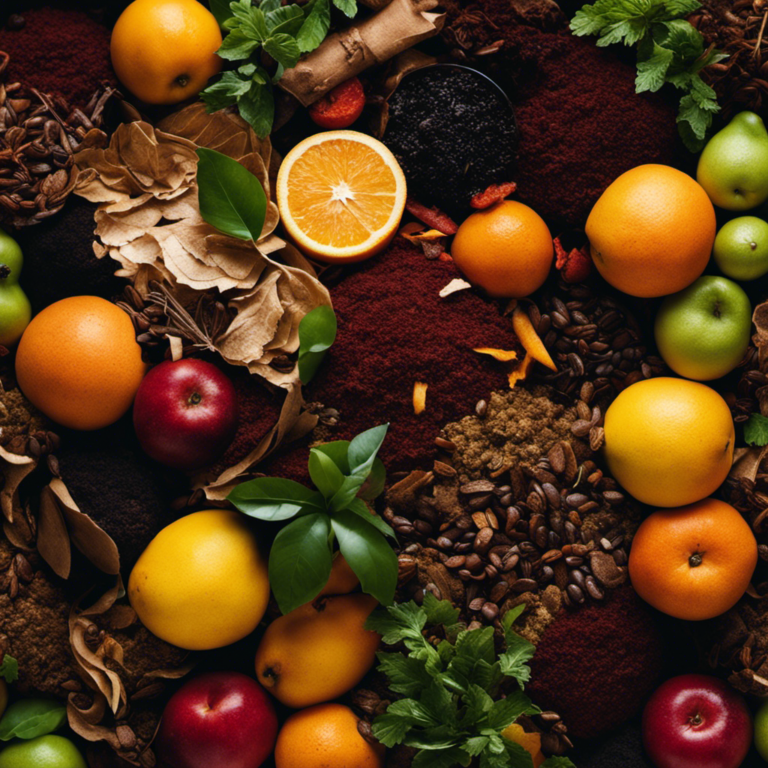I have a secret to share with you – a foolproof method to grow healthy, organic vegetables right in your own backyard. It’s all about composting, my friend.
Now, I understand that composting might sound complex and time-consuming, but don’t fret! I’ve compiled a list of 5 efficient composting systems that are user-friendly and will help your veggies flourish in no time.
So grab your shovel and join me on this green and nutrient-rich journey.
Key Takeaways
Composting is a practical and efficient way to create nutrient-rich soil for growing organic vegetables. By using strong composting systems like trench composting or worm composting, you can reduce waste and establish a sustainable gardening practice.
Did you know that composting can divert up to 30% of household waste from landfills? This statistic emphasizes the significant impact composting can have on waste reduction and promoting a greener environment.
Start composting today and enjoy the benefits of healthy, organic veggies!
Trench Composting
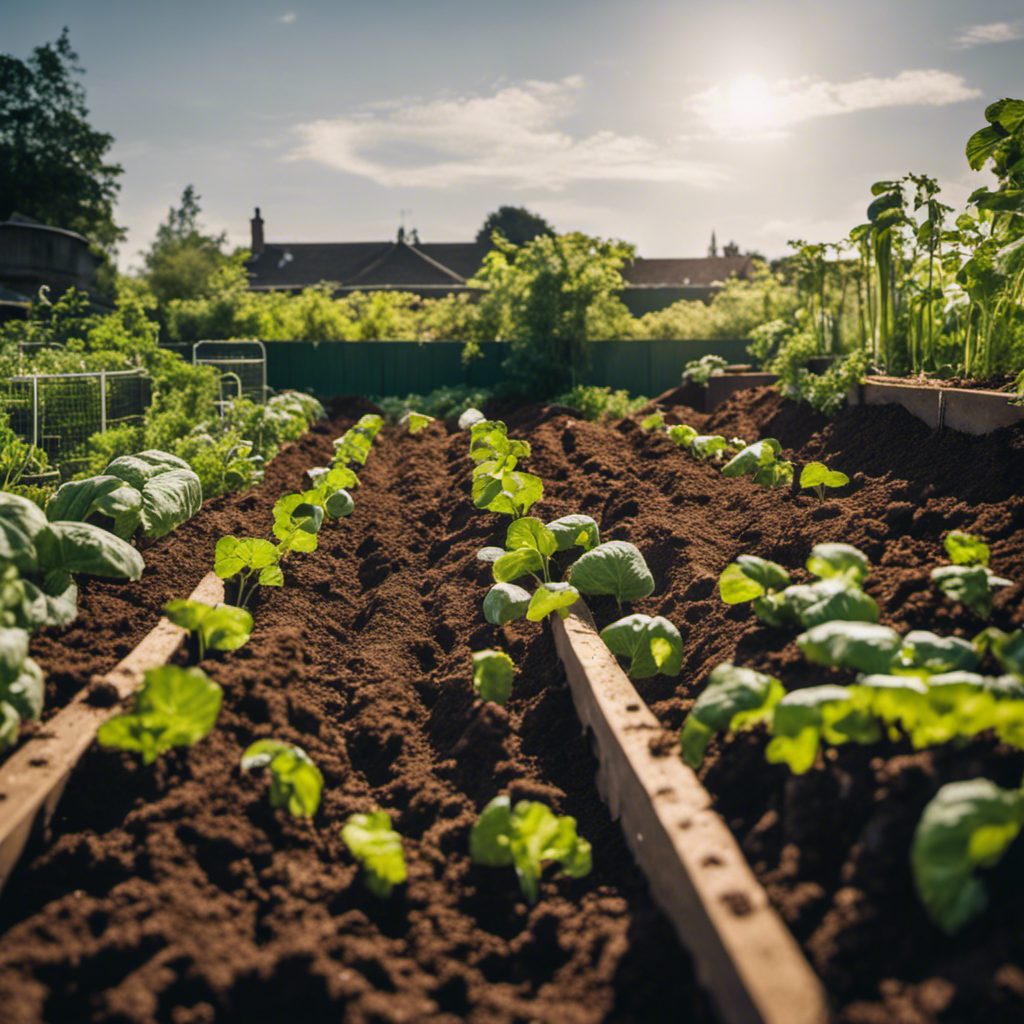
Trench composting is a simple and effective method for improving soil quality and promoting the growth of organic vegetables. Instead of throwing away kitchen scraps and yard waste, you can utilize them to create nutrient-rich soil for your garden.
The process of trench composting involves digging a trench about 12 inches deep and wide in your garden. Then, you can layer the trench with organic waste such as vegetable scraps, coffee grounds, and leaves. Cover the waste with a layer of soil and repeat the process until the trench is full. Finally, cover the trench with soil to prevent odors and pests.
One of the main benefits of trench composting is that it helps create nutrient-rich soil. As the organic waste decomposes, it releases essential nutrients that are absorbed by the plants’ roots. This leads to healthier plants with stronger roots, vibrant foliage, and bountiful harvests.
Trench composting also offers efficient waste management. Instead of sending your organic waste to landfills, you can repurpose it to improve your garden soil. This not only reduces waste but also saves you money on fertilizers.
Worm Composting
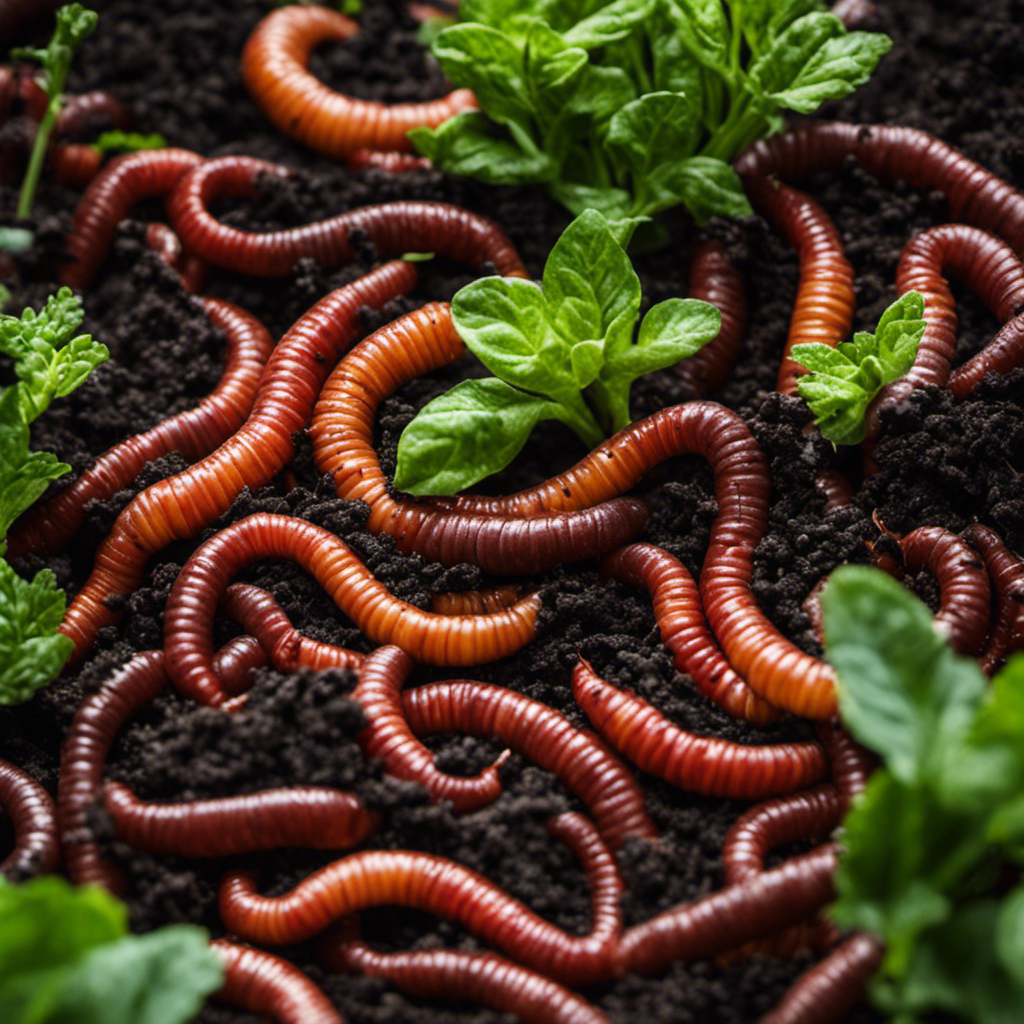
Worm Composting
To continue building upon the benefits of trench composting, another effective method for creating nutrient-rich soil for organic vegetables is worm composting. Worm composting, also known as vermicomposting, involves using worms to break down organic waste into rich, dark compost. This method has numerous benefits for both the environment and your garden.
One of the major benefits of vermicomposting is that it helps to reduce waste. By feeding your kitchen scraps and other organic materials to the worms, you’re diverting waste from the landfill and turning it into valuable compost. This not only helps to reduce greenhouse gas emissions but also decreases the strain on our waste management systems.
In addition to waste reduction, worm composting also produces a high-quality compost that’s rich in nutrients. The worms break down the organic matter and their castings, or worm poop, create a nutrient-rich soil amendment that’s perfect for growing organic vegetables. This compost is full of beneficial microorganisms that help to improve soil structure, retain moisture, and suppress plant diseases.
Maintaining a worm bin is relatively simple. It’s important to keep the bin moist but not too wet, as the worms need a moist environment to thrive. Regularly adding fresh bedding materials, such as shredded newspaper or cardboard, provides the worms with a comfortable environment and helps to control odors. It’s also important to avoid adding meat, dairy, and oily foods to the bin, as these can attract pests.
In conclusion, worm composting is a beneficial method for creating nutrient-rich soil for your organic vegetables. It helps to reduce waste, produces high-quality compost, and is relatively easy to maintain. By incorporating worm composting into your composting system, you can create robust and healthy plants that will yield lush organic veggies.
[Custom Quote]: ‘Worm composting is a sustainable and effective way to turn your kitchen scraps into nutrient-rich soil for your organic garden.’
Bokashi Composting
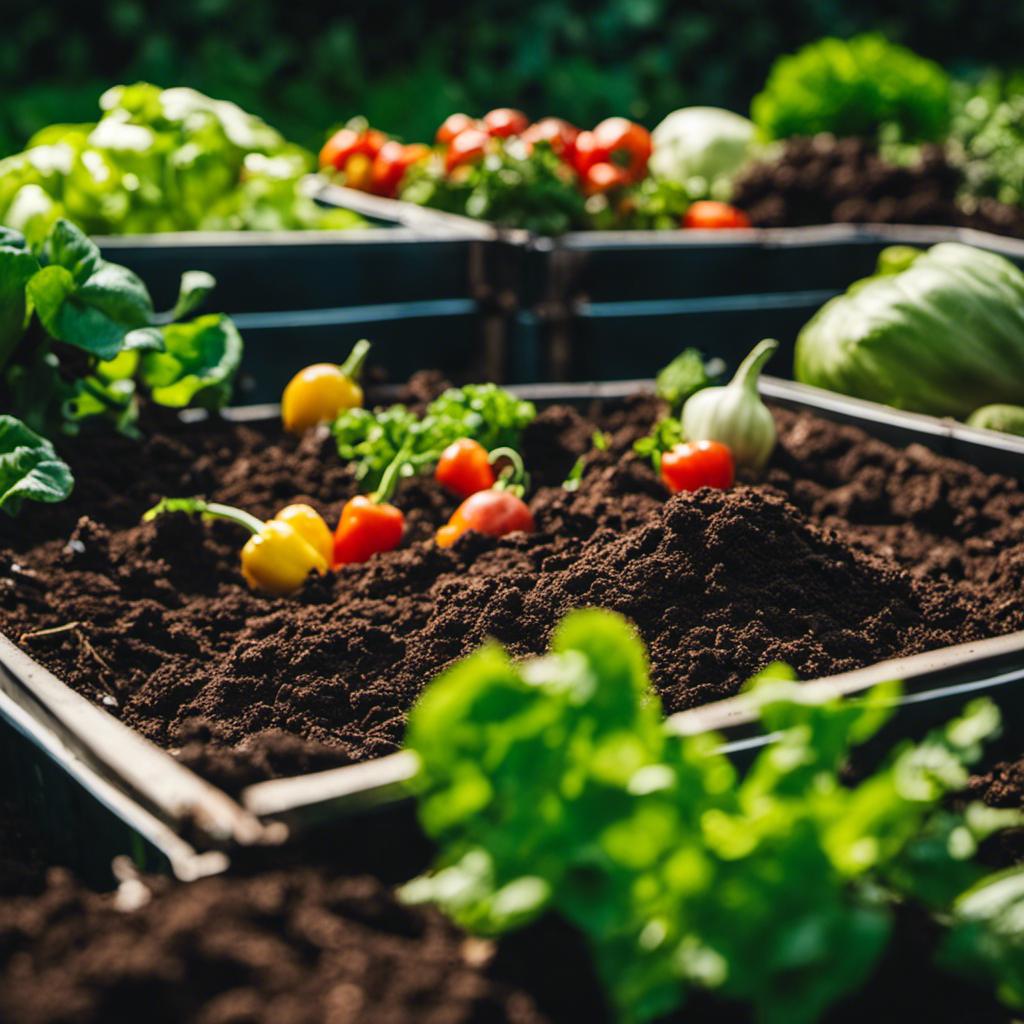
Bokashi Composting: A Natural Solution for Nutrient-Rich Soil
One effective method for creating nutrient-rich soil for organic vegetables is bokashi composting. This innovative composting technique offers several advantages over traditional methods, making it an excellent choice for those seeking to enhance their gardening practices.
One of the main benefits of bokashi composting is its ability to process a wide range of organic waste, including meat, dairy, and cooked foods. This is made possible through the use of anaerobic fermentation, a process that efficiently breaks down waste materials. By diverting a greater variety of food scraps from the landfill, you can transform them into valuable soil amendments for your garden.
Getting started with bokashi composting at home is relatively simple. First, you’ll need a bokashi bin, which is specifically designed for the fermentation process. Next, layer your food scraps with a sprinkle of bokashi bran. This bran contains beneficial microorganisms that aid in the fermentation process. Repeat this layering technique until the bin is full, ensuring that you press down each layer to eliminate any air pockets. Finally, seal the bin and allow it to sit for approximately two weeks, allowing the fermentation process to complete.
Bokashi composting is a practical and efficient way to create nutrient-rich soil for your organic vegetable garden. By following these straightforward steps, you can easily start bokashi composting at home and enjoy the benefits of this natural composting method.
Compost Tea Brewing
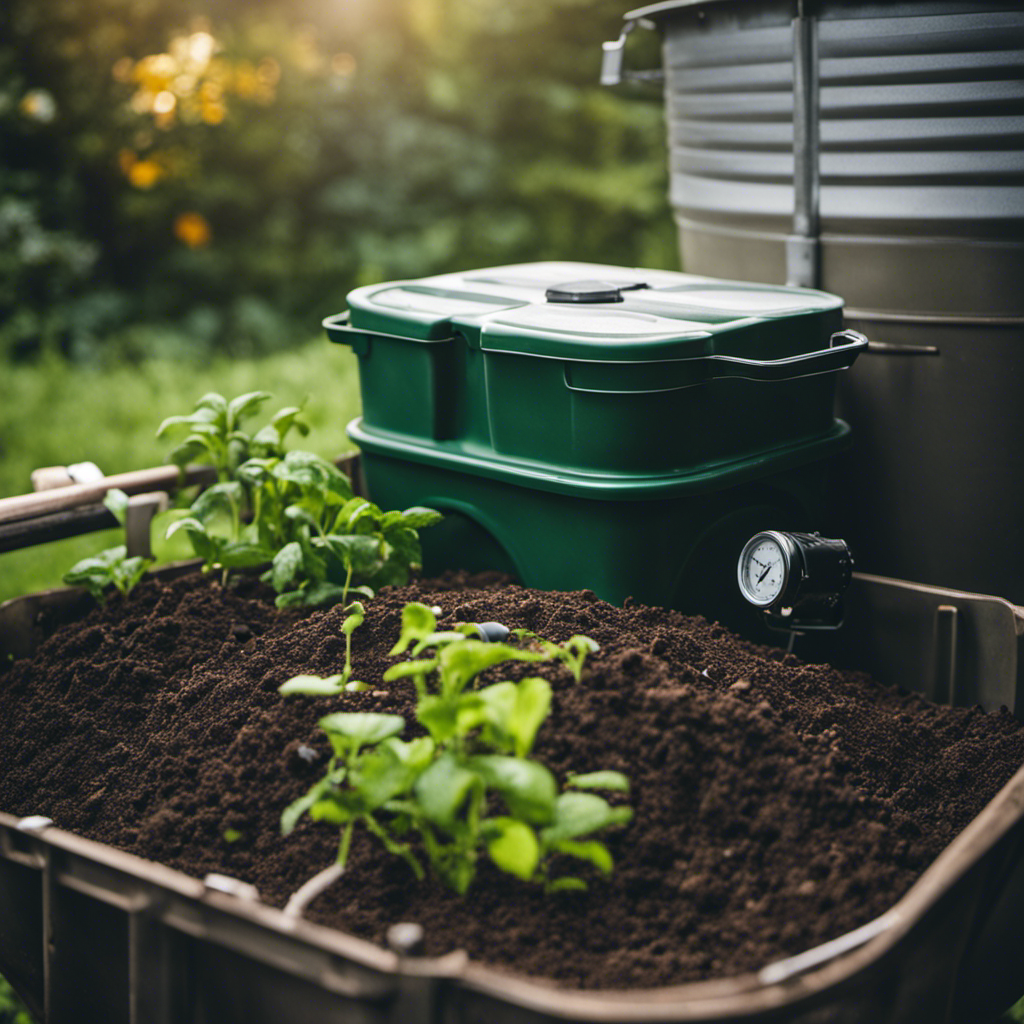
Composting Tea Brewing
I enjoy brewing compost tea to improve the growth of my organic vegetables. Compost tea is a liquid fertilizer created by soaking compost in water. It’s an excellent way to maximize the benefits of compost and provide your plants with a nutrient-rich boost.
Compost tea offers numerous advantages. Firstly, it enhances soil structure and fertility by introducing beneficial microorganisms. These microorganisms aid in the breakdown of organic matter and the release of nutrients that plants can easily absorb. Additionally, compost tea helps suppress plant diseases and pests, resulting in healthier plants that are more resilient to common issues. It also promotes plant growth and overall vigor, leading to larger and more abundant harvests.
To make compost tea, you’ll need compost, water, and a container. Begin by filling the container with water and adding a generous amount of compost. Allow it to steep for approximately 24-48 hours, stirring occasionally. Once the steeping period is complete, strain out the solids and dilute the tea with water. The compost-to-water ratio will depend on the desired strength of the tea, but a general recommendation is 1 part compost to 5 parts water.
Brewing compost tea is a simple and effective method of nourishing your organic vegetables. By incorporating this natural fertilizer into your gardening routine, you can enjoy healthier plants and bountiful harvests. Remember, it’s essential to provide your plants with the proper care and nutrients they need to thrive. As a gardener, you have the power to create a flourishing and sustainable garden.
Aerated Static Pile Composting
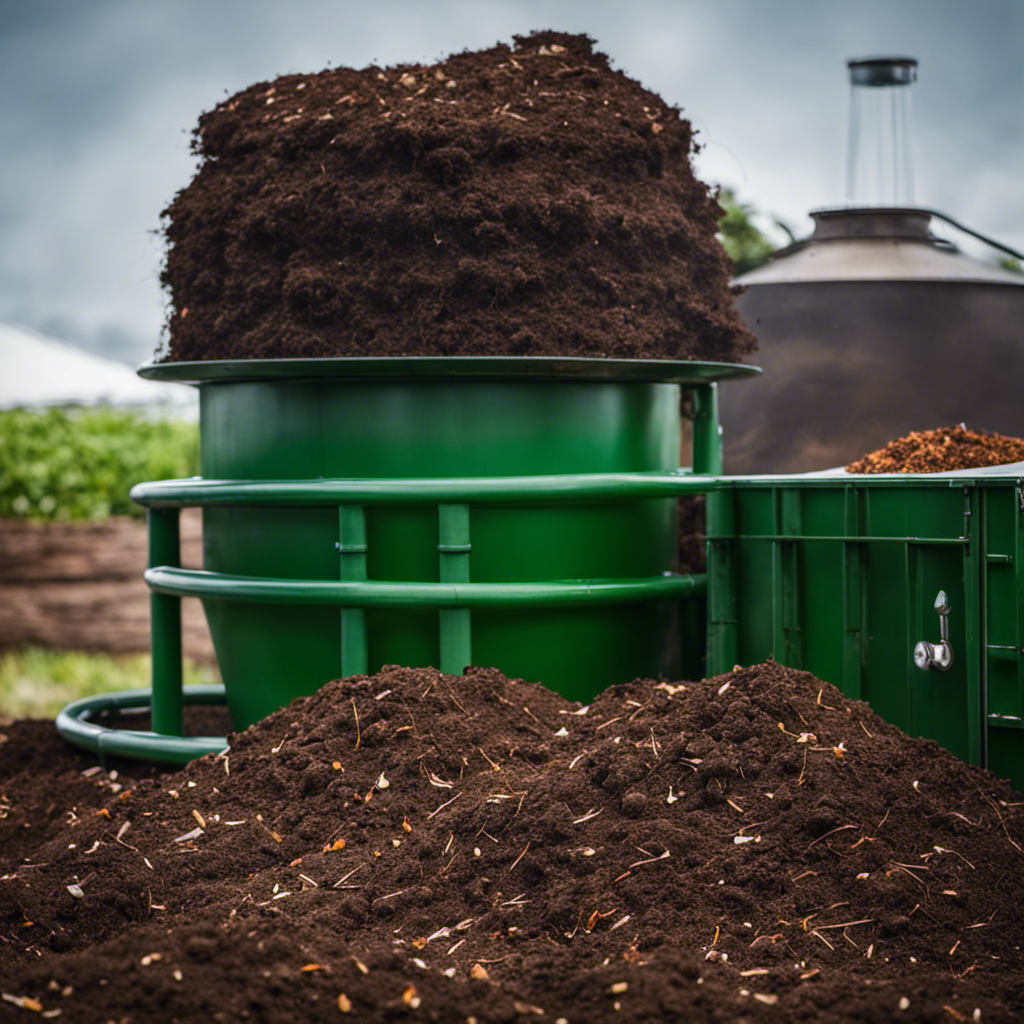
I often use aerated static pile composting to efficiently decompose organic materials for my organic vegetable garden. This composting method offers several advantages over traditional techniques. Here are four key benefits of aerated static pile composting:
-
Faster decomposition: Aerated static pile composting promotes rapid decomposition of organic materials. By continuously supplying oxygen to the pile, it encourages the growth of aerobic bacteria, which break down the organic matter more efficiently. This means you can obtain nutrient-rich compost for your vegetables in a shorter period of time.
-
Reduced odor and pests: Unlike traditional composting methods, aerated static pile composting minimizes unpleasant odors and discourages pests. The aeration process helps control the release of volatile compounds, resulting in a more pleasant composting experience. Additionally, the increased decomposition rate reduces the chance of attracting unwanted pests to your compost pile.
-
Consistent temperatures: In aerated static pile composting, the piles are carefully monitored and controlled to maintain optimal temperature conditions. This ensures that the composting process remains efficient and effective throughout. Consistent temperatures help break down the organic matter more quickly and result in high-quality compost for your vegetables.
-
Scalability: Aerated static pile composting is suitable for both small-scale and large-scale composting operations. Whether you have a small backyard garden or a commercial farm, this method can be adapted to meet your composting needs. Its versatility makes it a convenient choice for anyone wanting to produce their own nutrient-rich compost.
Conclusion
Composting is a practical and efficient way to produce nutrient-rich soil for growing organic vegetables. By using robust composting systems like trench composting or worm composting, you can reduce waste and create a sustainable gardening practice.
Did you know that composting can divert up to 30% of household waste from landfills? This statistic highlights the significant impact composting can have on waste reduction and promoting a greener environment.
Start composting today and enjoy the benefits of healthy, organic veggies!
